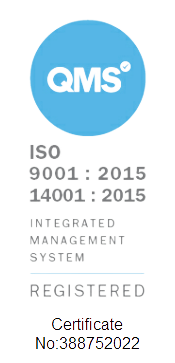“Sustainability” largely entered the business lexicon around the time of rising environmental consciousness, when talks of “going green” were becoming increasingly pronounced. A few years ago, there was a dramatic shift in the business landscape, spurred on by a tide of public opinion that called for changes to the way we do things to take us back from the cliff edge of global warming - for, as any climate change activist will readily point out, there is no Planet B.
Business sustainability is often synonymised with being environmentally friendly, and this is indeed half the deck. This does mean there is also another half to it: the human side. The UN Sustainable Development Goals, used by many organisations (ourselves included) as a measurement of how sustainable their practices are, have ten of these goals relating to how we live as a society. Diversity, justice, good working conditions and innovation are just as important to sustainable development as eliminating your carbon footprint.
To put it in simple terms, sustainability can be thought of as an elimination exercise: an elimination of activities that will, sooner or later, result in somebody saying: “we can’t keep going like this”.
So how does one move towards sustainability? Having been through a sustainability push ourselves, here are some of the methods we use!
Going green: the environmental side of sustainability
How can you ensure that your operations are the greenest they can be? There are several solutions that we implement.
- While the installation of recycling bins has become something of a sustainability cliche (and some even more cynical people may call it a hallmark of greenwashing), it is worth mentioning and implementing since landfill contributes to 11% of global CO2 emissions. With both points in mind, we’ll just quickly say we do it and move things along!
- Select an office space that uses renewable energy: this was one of the key reasons why we moved our offices to where they are currently located.
- Encourage staff to use greener methods of transport: Cobry participates in the cycle-to-work scheme as well as the more recently released electric vehicles scheme, and our offices are located near bus and train stations to encourage staff to take public transport.
- Go paperless as much as possible - not only will it save you money in printing costs, but it’s also much friendlier towards trees. All of Cobry’s documents are stored electronically, on Google Workspace, ensuring that our paper usage is kept to a minimum.
Taking care of your staff: The human side of business sustainability
Staff sustainability is one of the key reasons why sustainability is more than a nice-to-have, for several reasons. An enthusiastic workforce is one that is more productive, is more likely to go the extra mile and is easier to retain. And increasingly, customers pay very close attention to how a company treats its staff when making purchase decisions.
Therefore, taking care of your staff is a core part of sustainability. There are several ways you can achieve this.
Salaries are worth discussing in their own paragraph. Anything less than a suitable wage is a false economy: you can have all the coffee machines in the world in your office and throw a pizza party for the ages, but as long as staff can’t make ends meet you’ll be saying goodbye to them soon enough. Becoming a certified living wage employer, as Cobry is, is one way to ensure that your staff will have enough to survive and thrive relative to local costs of living. Note to any companies based in London: as the Big Smoke is pricier, the living wage there is two pounds higher than in the rest of the country.
Moving onto other benefits, here are some that Cobry provides to every staff member:
- Constant learning opportunities in the form of in-person training and online courses and reading materials.
- Provision of out-of-work benefits, such as socials and free books.
- Free coffee, which we get delivered to employees’ homes.
- Participation in government schemes such as the electric vehicle and cycle-to-work schemes - some of these can be joined at no extra cost to your business.
- Flexible hours - staff members can have all sorts of different personal preferences for when to work for various reasons. Some may be balancing work and care responsibilities, some may feel more productive at different times of the day and some may prefer to take a longer lunch break.
- Generous pension contributions - even if your team is young, it’s never too early to prepare them for retirement.
- Allowing people to work remotely - Cobry is a remote-first workplace, and four of our current eighteen staff members live outside of Glasgow where our offices are based. Reduced stress, increased inclusivity for disabled individuals or parents, and the ability to work from areas with lower costs of living are just some of the reasons why working from home has been a boon to the human side of sustainability.
- A four-day workweek - this was probably the most ambitious benefit Cobry sought to provide to staff, and after a successful trial that found it significantly reduced stress and burnout, and that the aim of achieving the 80/100/100 rule (80% time, 100% pay, 100% productivity) had been accomplished, we decided to make it an official policy. Flexibility is key here: staff can choose which days to take off, can split time off across multiple days or can choose to opt-out altogether.
The company you keep: ensuring your suppliers are sustainable
However green your operations are, partnering with less-than-responsible organisations will spill over onto your business sustainability score. Additionally, responsible suppliers can become a strong talking point marketing-wise. Note that suppliers are not just limited to groups that supply your product’s components (which may have been the first thought to enter your head if you’re a service provider).
For example, consider where you get your coffee from (everyone loves a good cup of coffee, don’t they?) - we get ours from Dear Green Coffee, a Glasgow-based supplier with sustainability right at the heart of what they do. They're also a recently certified B corp, they make sure to treat people and the planet well by not only looking inward but also vetting suppliers carefully.
Digital infrastructure is another supplier to consider for sustainability wins. One of the major reasons we partnered with Google is that it is the greenest cloud solution available. Google is already carbon-neutral, by 2030 Google aims to have its data centres running on completely carbon-free energy and deliver six times the computing capacity of alternatives for the same amount of power. Additionally, Google provides its solutions for free to many sustainability-oriented nonprofits, and all Google Cloud customers can access a tool called the Carbon Suite which enables them to calculate their carbon footprint.
In conclusion
With business sustainability close to our hearts and technical expertise to match, Cobry is the ideal partner to move your organisation to a more sustainable way of doing things with Google Cloud (as well as a myriad of other benefits). Get in touch with us to get started!







